Bowdoin College, The John and Lile Gibbons Center for Arctic Studies and Barry Mills Hall
Brunswick, maine
Best Higher Education/Research
Submitted By: Consigli Construction Co.
Region: ENR New England
Owner: Bowdoin College
Lead Design Firm | Structural & MEP Engineer: HGA Architecture and Engineers
General Contractor: Consigli Construction Co.
Civil Engineer: Sebago Technics Inc.
Landscape Architect: Stimson Studio
Subcontractors: South County Post & Beam Inc.; ES Boulos Co.; Johnson & Jordan Inc.; Dean & Allyn Inc.; Maine Masonry Company Inc.; Ace Corp.; Windham Millwork Inc.
Maine's first ever commercial mass timber structure is also the first to use a mass timber lateral system to resist wind and seismic loads, says Matt Tonello, Consigli director of operations and project executive.
The $28.5-million, 46,000-sq-ft project, completed on schedule in 21 months, includes two buildings: the three-story Gibbons Center for Arctic Studies with six offices, several classrooms, an archaeology lab and two galleries that house the Peary-MacMillan Arctic Museum collection; and the two-story mass-timber Mills Hall academic building with classrooms and academic, research and event spaces.
“Constructing these buildings during a global pandemic involved extraordinary supply chain and scheduling challenges” with the pre-cut mass timber shipped in more than 30 containers from Europe and “delivered sequentially for in-time assembly,” says Matthew Orlando, Bowdoin senior vice president for finance and administration.
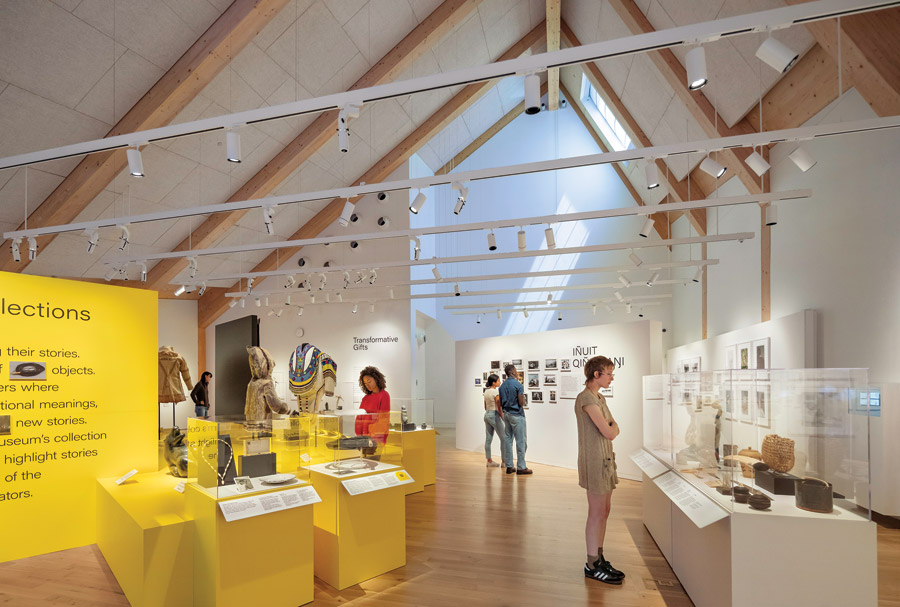
Photo by Michael Moran courtesy HGA
To protect sensitive artifacts housed in the Peary MacMillan Arctic Museum, “our team engineered an efficient all-electric system while maintaining critical temperature and humidity control for collections,” says Rebecca Celis, principal and arts, community and education sector leader at Boston-based architecture firm HGA.
The cross-laminated timber floors and roofs are supported by glulam timber beams and columns and roof glulams secured with steel ties, says Lauren Piephho, structural engineer at the company.
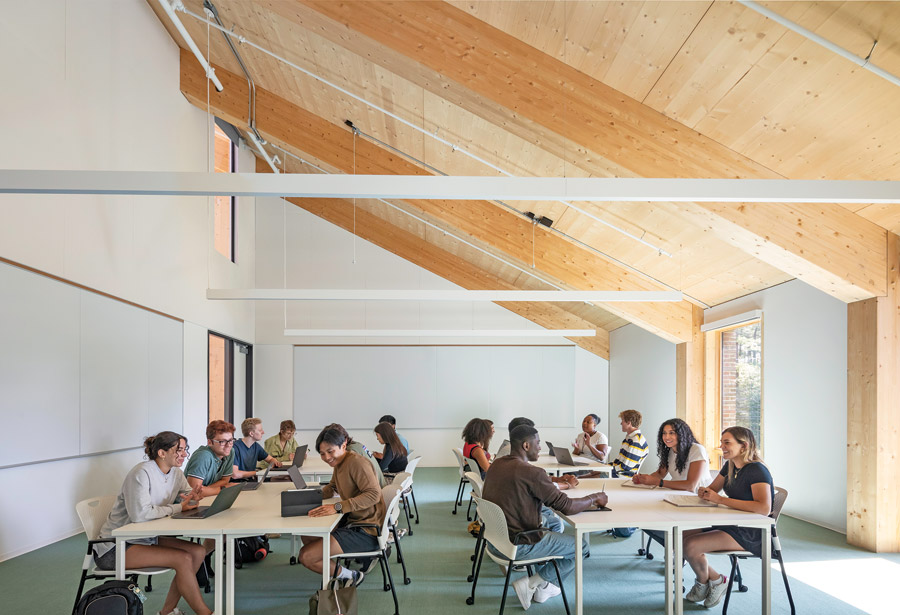
Photo by Michael Moran courtesy HGA
“Bowdoin is committed to eliminating on-campus fossil-fuel emissions by 2042 through decarbonization strategies and the adoption of renewable energy sources,” Orlando says. The team chose 100% electric energy for Mills Hall and the Gibbons Center to offset the electric load with both new and existing solar contracts, making these buildings the first net-zero facilities on campus, he adds.



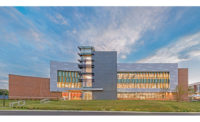
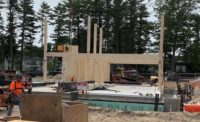
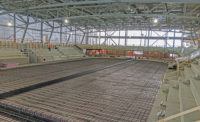
Post a comment to this article
Report Abusive Comment